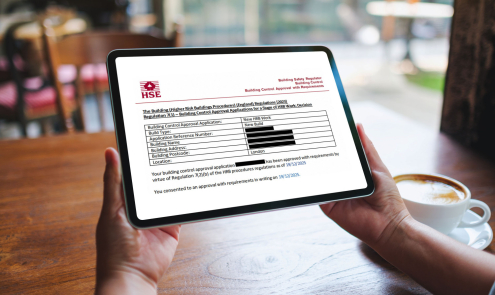ARE THE UK’S HEAT PUMP INSTALLATION TARGETS REALISTIC?
05 Sep 2023
As a sustainability-focused engineer, it is positive to see the conversation around converting to heat pumps gaining momentum within public discourse. Given the increasing global concern around global warming and the EU’s efforts to achieve carbon net-zero by 2050, it's encouraging to witness an increasing number of individuals engaging in discussions surrounding heat pumps given the environmentally-friendly benefits they offer. A recent report by the BBC has shed light on the government's plan to ban the sale of gas boilers starting from 2035, as part of a concerted effort to reduce carbon dioxide emissions. In theory this seems ideal, but is this achievable in practice?
Amidst these developments, it's notable that the United Kingdom, while taking progressive steps towards carbon reduction, remains among the slower adopters of this innovative technology across Europe. In the last year, a mere 60,000 heat pumps found their way into British homes. This slow rate of adoption raises concerns, especially when we consider the broader European landscape.
Considering the current trajectory of installations, we are faced with a startling statistic: it could conceivably require more than four centuries to equip every household in Britain with a heat pump. This is an alarming projection which shines a light on the difficult situation we find ourselves in. Add to this the fact that the UK faces a shortfall of qualified installers, numbering around 29,000. The huge disparity between the installers we currently have and the installations required casts doubt over how viable it really is to achieve our nationwide heat pump installation targets.
In light of these developments, we’re left to ask: is the complete replacement of gas and boilers feasible? The transition away from gas boilers toward more sustainable alternatives, such as heat pumps, holds significant implications for both the environment and our daily lives. As we navigate this uncharted territory, it's crucial to remain engaged in the dialogue, considering the multifaceted aspects that influence policy decisions, technological advancements, and the broader societal impacts of such shifts.
In conclusion, the discourse surrounding heat pumps and the impending shift away from gas boilers has garnered well-deserved attention. While acknowledging the strides made thus far, it's imperative to address the challenges ahead, particularly with respect to installation rates and the availability of skilled professionals. By having an open and honest exchange of ideas in the construction industry, we can collectively contribute to shaping a more sustainable and environmentally conscious future. As professionals in the construction industry, sharing our opinions and ideas on the matter can help create a solution that benefits the industry, property owners and our planet.

WHITECODE CONSULTING GAINS HIGHLY...
As a company that prides itself on sustainability in design and exceeding – not just meeting – industry standards, Whitecode Consulting is delighted to announce it has gained the coveted Chartered Institution of Building Services...
Read More
Passing Gateway Two: What you need to know...
Gateway Two is a key aspect of building safety and quality. However, the Building Safety Regulator’s (BSR) approval process is causing significant backlogs in UK construction projects. While indications suggest the BSR itself...
Read MoreLike to Know More? Let's Talk...







